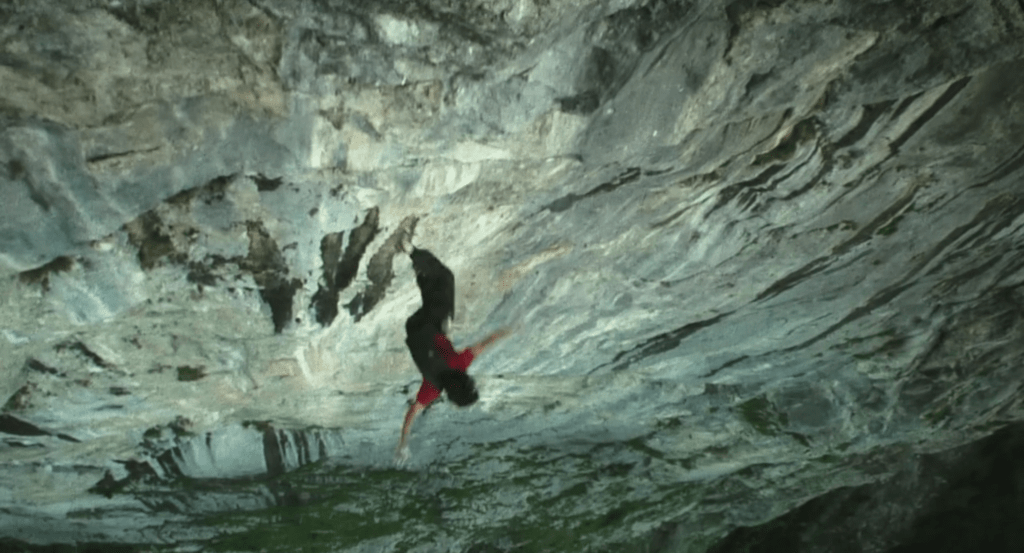
Dissertation project
2023-2026
In my dissertation project Choreographies of (not-)falling with the research collective „Configurations of Film“, I’m researching climbing films and the configurations of falling. This is the abstract for now:
Although it is often the ascent in a vertical movement that marks the success of climbing, it is the fall that finds its way into the audiovisual representation of the sport. It not only shows danger, but structures films, emphasizes how hard a move is, how the climber has to learn and how a mode of play emerges.
Based on non-fictional mountain-, expedition and climbing films, the dissertation project Choreographies of (not-)falling examines this dialectic of (not-) falling.
By depicting falling bodies, climbing films show “edgework”[1] at the moment of loss of control. While successful edgework actively maintains control over movement and body, the moment of falling marks the crossing of the boundary and the loss of control. The dissertation project investigates how bodies are choreographed to avoid falling or to maintain autonomy in falling. It also examines the choreography of film-making teams and bodies, which represents another edgework moment, and looks at it in close conjunction with media and technology history in the performative sports moment. Because of its risk of injury or death, falling can be understood as a taboo subject and event that evokes reactions of a visceral nature in the spectating body. Climbing films can also inspire, teach movement, be utilized to train and thus be visual agents that access the body.
The project searches to also reflect on climbing films‘ history and traces it back to early mountain cinema and its problematic colonial, gendered, nationalist and heroic implications.
Another chapter that I’m planning right now will deal with climbing films‘ construction of bodies, nature, environment and style cultures.
If you’re interested to talk more about this, are a climber or climbing film maker, please don’t hesitate to contact me! I’m interested in your input and ideas.
[1] Lyng, Stephen. Edgework: A Social Psychological Analysis of Voluntary Risk Taking. University of Chicago, 1990.
*My working language is german, but articles will be available in english.

